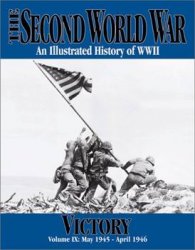Some westerners pressed for war because they were suffering an agricultural depression. The prices they received for their wheat, tobacco, and other products in the markets of New Orleans were falling, and they attributed the decline to the loss of foreign markets and the depredations of the British. American commercial restrictions had more to do with the western depression than the British, and in any case the slow and cumbersome transportation and distribution system that western farmers were saddled with was the major cause of their difficulties. But the farmers were no more inclined to accept these explanations than they were to absolve the British from responsibility for the Indian difficulties. If only the seas were free, they reasoned, costs would go down, prices would rise, and prosperity would return.
To some extent western expansionism also heightened the war fever. The West contained immense tracts of virgin land, but westerners wanted more. Canada would surely fall to American arms in the event of war, the frontiersmen believed. So, apparently, would Florida, for Spain was now Britain’s ally. Florida in itself provided no cause for a war, for it was sure to fall into American hands before long. In 1810 Madison had snapped up the extreme western section without eliciting any effective response from Spain.
So it was primarily because of Canada, nearby and presumably vulnerable, that westerners wanted war. President Madison probably regarded an attack on Canada as a way to force the British to respect neutral rights. Still more important in Madison’s mind, if the United States conquered Canada, Britain’s hope of obtaining food in Canada for its West Indian sugar islands would be shattered. Then it would have to end its hateful assaults and restrictions on American merchant ships or the islands’ economy would collapse.
But westerners, and many easterners too, were more patriots than imperialists or merchants in 1811 and 1812. When the War Hawks (their young leaders in Congress) called for war against Great Britain, they did so because they saw no other way to defend the national honor and force repeal of the Orders in Council. The choice seemed to lie between war and surrender of true independence. As Madison put it, to bow to British policy would be to “recolonize” American foreign commerce.
Such a policy would have been wise, for Great Britain did not represent a real threat to the United States. British naval officers were high-handed, officials in London complacent, British diplomats in Washington second-rate and obtuse. Yet language, culture, and strong economic ties bound the two countries. Napoleon, on the other hand, represented a tremendous potential danger. He had offhandedly turned over Louisiana, but even Jefferson, the chief beneficiary of his largesse, hated everything he stood for. Jefferson called Napoleon “an unprincipled tyrant who is deluging the continent of Europe with blood.”
No one understood the Napoleonic danger to America more clearly than the British; part of the stubbornness and arrogance of their maritime policy grew out of their conviction that Napoleon was a threat to all free nations. The Times of London declared, “The Alps and the Apennines of America are the British Navy. If ever that should be removed, a short time will suffice to establish the headquarters of a [French] Duke-Marshal at Washington.” Yet by going to war with Britain, the United States was aiding Napoleon.
What made the situation even more unfortunate was the fact that by 1812 conditions had changed in England in a way that made a softening of British maritime policy likely. A depression caused chiefly by the increasing effectiveness of Napoleon’s Continental System was plaguing the country. Manufacturers, blaming the slump on the loss of American markets, were urging repeal of the Orders in Council. Gradually, though with exasperating slowness, the government prepared to yield. On June 23, after a change of ministries, the new foreign secretary, Lord Castlereagh, suspended the Orders. Five days earlier, alas, the United States had declared war.




 World History
World History









